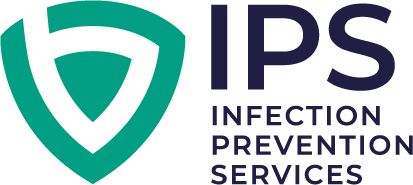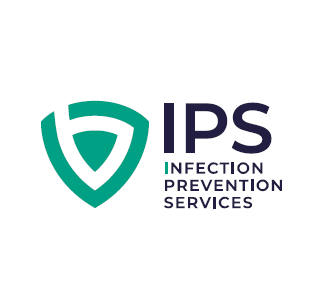Aug 24
Audit Failures in Aged Care Facilities
What are they and where to from here?
Based on findings from regulatory bodies and industry reports in both Australia and New Zealand, the most serious and common failures in aged care audits relate to staffing issues, inadequate resident care, poor documentation, and lapses in infection control. Addressing these issues requires a commitment to a resident-centred culture, strong internal processes, and the use of technology to enhance transparency and accountability.

For IPC leads in Australia and New Zealand, recent audit findings reveal a troubling truth: despite increased awareness, significant failures in IPC still occur, threatening our most vulnerable residents. This blog is a direct message to you, the frontline infection prevention champions, to examine these systemic issues and determine a clear path for lasting improvement.
The Unacceptable Reality: Common IPC Audit Failures
Regulatory bodies and industry reports consistently highlight lapses in Infection Prevention and Control as a significant concern in aged care audits across Australia and New Zealand. These failures are more than just procedural oversights; they undermine resident safety and contribute to the rapid spread of infections, putting lives at risk.
Specifically, audits frequently uncover:
Specifically, audits frequently uncover:
- Lack of Proper Hygiene Protocols: Basic practices such as hand hygiene, cleaning schedules, and waste management are often found to be inadequate. As IPC leads, ensuring these essential, yet critical, protocols are not just documented but consistently followed is crucial.
- Inadequate Sanitation: The environment can act as a source of infection if sanitation standards are not strictly upheld. This covers the cleanliness of resident rooms, communal areas, and high-touch surfaces.
- Failure to Train Staff on Effective Infection Control Measures: This is an ongoing and vital issue. Staff may lack the necessary skills, especially when caring for new residents with complex needs, or may not be sufficiently updated on the latest best practices and regulatory standards. The gap between knowing and doing, particularly in high-pressure situations, reveals a significant training shortfall.
These deficiencies are often worsened by other systemic problems, such as insufficient staffing, which can cause delayed responses to care needs and reduced hygiene support, further raising infection risks. Likewise, poor documentation can hamper the ability to monitor infection incidents, identify trends, and deliver timely interventions, creating hazardous gaps in care.
Making Amends: A Strategic Playbook for IPC Leads
Improving aged care isn't just about "passing an audit"; it's about fostering a culture of ongoing improvement that consistently prioritises resident safety and well-being. As an IPC lead, you must take proactive, strategic measures to shift your facility's approach to infection control.

1. Reinforcing the IPC Workforce and Culture
The most successful IPC programs are based on a knowledgeable and confident workforce.
The most successful IPC programs are based on a knowledgeable and confident workforce.
- Implement Continuous, Targeted IPC Training: Your role is vital in developing and supporting strong training programs. These should cover all aspects of infection control, including new regulatory standards, specific protocols for various pathogens, and emphasise competency-based training, regular refreshers, and scenario-based learning. Importantly, empower your staff to feel comfortable reporting and addressing IPC issues without fear of reprisal. They are your eyes and ears on the ground.
- Building an IPC-First Culture of Quality: Shift the organisational mindset from merely avoiding audit penalties to genuinely delivering the highest standard of care, with IPC as a core element. This involves fostering open communication across all staff levels, encouraging feedback on IPC practices, and actively utilising audit results as a tool for targeted improvement rather than solely for punishment. Your leadership in nurturing this culture is essential.
2. Leveraging Technology for IPC Excellence
Technology is now a necessity, not a luxury, for strong IPC management and audit readiness.
Technology is now a necessity, not a luxury, for strong IPC management and audit readiness.
- Automated Tracking for Training & Competency: Implement systems that monitor the completion of mandatory infection control training and evaluate staff competencies. This enables you to proactively identify and address training gaps before they lead to critical audit failures or, worse, outbreaks.
- Digital IPC record-keeping: Moving from paper to digital systems is essential. This guarantees that infection surveillance data, outbreak management plans, resident health records (including infection history and treatment), and staff training logs are accurate, easily accessible, and reviewable in real time. This greatly simplifies the auditing process, allowing auditors to efficiently verify IPC compliance and enabling you to rapidly identify trends and areas needing intervention.
3. Proactive IPC Oversight and Transparency
Waiting for an official audit to uncover IPC issues is a recipe for disaster. Being proactive is key.
Waiting for an official audit to uncover IPC issues is a recipe for disaster. Being proactive is key.
- Regular Internal IPC Audits: As an IPC lead, you should promote and perform regular internal audits focused on infection prevention and control. These audits should mirror the formal regulatory process, enabling early detection of non-compliance with hygiene protocols, sanitation, and staff practices, giving your facility enough time to implement corrective measures. Consider peer-to-peer audits to encourage shared responsibility.
- Engaging Residents and Families in IPC Vigilance: Actively seek and value feedback from residents and their families about their experiences with hygiene and infection control. Their perspective is invaluable and can often help identify systemic IPC issues that may not be apparent solely from records or staff observations. This empowers them as partners in care.
- Transparent Communication with Regulators: Build a proactive and open relationship with regulatory bodies such as Australia's Aged Care Quality and Safety Commission and New Zealand's Ministry of Health. Be transparent about IPC challenges your facility encounters and, importantly, present a clear, actionable plan for ongoing improvement. This fosters trust and positions your facility as a dedicated partner in safety.

Conclusion: Leading the Charge for a Safer Future
The failures in IPC audits serve as a wake-up call but also present an opportunity. As IPC lead staff, you are in a unique position to drive this vital transformation. By consistently prioritising ongoing training, adopting technological solutions, and fostering a culture of proactive vigilance and transparency, we can move beyond simply "making amends" to genuinely revolutionise infection prevention and control in aged care.
Your dedication is the shield that protects our most vulnerable. Let these insights inspire you to explore further, innovate, and share best practices. The journey to flawless IPC is ongoing, but with your leadership, we can create aged care environments where every resident is truly safe from preventable infections. The time for deeper exploration, collaboration, and unwavering commitment to IPC excellence is here.
Concerned about compliance? IPS offers independent audits to help your facility meet requirements and, importantly, to track the success or failure of infection prevention and control strategies.
Your dedication is the shield that protects our most vulnerable. Let these insights inspire you to explore further, innovate, and share best practices. The journey to flawless IPC is ongoing, but with your leadership, we can create aged care environments where every resident is truly safe from preventable infections. The time for deeper exploration, collaboration, and unwavering commitment to IPC excellence is here.
Concerned about compliance? IPS offers independent audits to help your facility meet requirements and, importantly, to track the success or failure of infection prevention and control strategies.
For more information, talk to EVE, our multilingual “bot” on the IPS HUB, or call our friendly team at support@infectionprevention.care
We are on Facebook and LinkedIn. Follow us, like and share.
Take advantage of our expertise in IPC. See the HUB for policies, resources and courses relating to this very important subject. Ask EVE for a quick answer to your question.
We are on Facebook and LinkedIn. Follow us, like and share.
Take advantage of our expertise in IPC. See the HUB for policies, resources and courses relating to this very important subject. Ask EVE for a quick answer to your question.
Lyndon Forrest
Managing Director | CEO
I am a passionate and visionary leader who has been working in the field of infection prevention and control in aged care for almost 30 years. I am one of the co-founders and the current Managing Director and CEO of Bug Control New Zealand and Australia, the premium provider of infection prevention and control services in aged care. I lead a team that is driven by a common purpose: to help aged care leaders and staff protect their residents from infections and create a healthier future for them.
I am building a business that focuses on our clients and solving their problems. We are focused on building a world-class service in aged care. We focus on being better, not bigger, which means anything we do is for our clients.
I am a passionate and visionary leader who has been working in the field of infection prevention and control in aged care for almost 30 years. I am one of the co-founders and the current Managing Director and CEO of Bug Control New Zealand and Australia, the premium provider of infection prevention and control services in aged care. I lead a team that is driven by a common purpose: to help aged care leaders and staff protect their residents from infections and create a healthier future for them.
I am building a business that focuses on our clients and solving their problems. We are focused on building a world-class service in aged care. We focus on being better, not bigger, which means anything we do is for our clients.
Erica Leadley
Manager, Marketing and Sales
Erica Leadley is a dedicated professional with a rich background in agriculture and nutrient management. Growing up on her family's farm in Mid Canterbury, she developed a deep passion for farming. She currently resides on her partner's arable property in South Canterbury.
In 2017, Erica joined the Farm Sustainability team, focusing on nutrient management and environmental stewardship. In February 2024, she became the Manager of Marketing and Sales at Bug Control New Zealand - Infection Prevention Services, where her passion now includes improving infection prevention outcomes.
Outside of work, Erica loves cooking and traveling, often combining her culinary interests with her explorations in Italy and Vietnam. She enjoys entertaining family and friends and remains actively involved in farm activities, especially during harvest season.
Erica Leadley is a dedicated professional with a rich background in agriculture and nutrient management. Growing up on her family's farm in Mid Canterbury, she developed a deep passion for farming. She currently resides on her partner's arable property in South Canterbury.
In 2017, Erica joined the Farm Sustainability team, focusing on nutrient management and environmental stewardship. In February 2024, she became the Manager of Marketing and Sales at Bug Control New Zealand - Infection Prevention Services, where her passion now includes improving infection prevention outcomes.
Outside of work, Erica loves cooking and traveling, often combining her culinary interests with her explorations in Italy and Vietnam. She enjoys entertaining family and friends and remains actively involved in farm activities, especially during harvest season.
Toni Sherriff
Clinical Nurse Specialist
Toni is a Registered Nurse with extensive experience in Infection Prevention and Control. Her career began as a kitchen hand and caregiver in Aged Care facilities, followed by earning a Bachelor of Nursing.
Toni has significant experience, having worked in Brisbane’s Infectious Diseases ward before returning home to New Zealand, where she continued her career as a Clinical Nurse Specialist in Infection Prevention and Control within Te Whatu Ora (Health NZ).
Toni brings her expertise and dedication to our team, which is instrumental in providing top-tier infection prevention solutions to our clients.
Toni is a Registered Nurse with extensive experience in Infection Prevention and Control. Her career began as a kitchen hand and caregiver in Aged Care facilities, followed by earning a Bachelor of Nursing.
Toni has significant experience, having worked in Brisbane’s Infectious Diseases ward before returning home to New Zealand, where she continued her career as a Clinical Nurse Specialist in Infection Prevention and Control within Te Whatu Ora (Health NZ).
Toni brings her expertise and dedication to our team, which is instrumental in providing top-tier infection prevention solutions to our clients.
Julie Hadfield
Accounts & Payroll
Julie is experienced in Accounts & Payroll Administration & after a long career in both the Financial & Local Government Sectors, is now working with our team. Julie brings her strong time management & organisational skills to our team, which is important to keep the company running in the background to enable the rest of our team to provide top notch service to all of our clients.
Julie is experienced in Accounts & Payroll Administration & after a long career in both the Financial & Local Government Sectors, is now working with our team. Julie brings her strong time management & organisational skills to our team, which is important to keep the company running in the background to enable the rest of our team to provide top notch service to all of our clients.
Andrea Murray
Content Editor
I attended Otago University in NZ and graduated as a Dental Surgeon. After 40 years in the profession, I retired in 2022. Infection prevention knowledge was part of everyday practice, dealing with sterilisation, hand hygiene, and cleaning.
Before retiring, I began doing some editing and proofreading for Bug Control as I am interested in the subject and in the English language. During the COVID-19 lockdown, I attended the ACIPC course "Introduction to Infection Prevention and Control", which increased my interest in the subject. I now work part-time as the Content Editor for the company.
I attended Otago University in NZ and graduated as a Dental Surgeon. After 40 years in the profession, I retired in 2022. Infection prevention knowledge was part of everyday practice, dealing with sterilisation, hand hygiene, and cleaning.
Before retiring, I began doing some editing and proofreading for Bug Control as I am interested in the subject and in the English language. During the COVID-19 lockdown, I attended the ACIPC course "Introduction to Infection Prevention and Control", which increased my interest in the subject. I now work part-time as the Content Editor for the company.
Personally, I lived in the UK for 10 years. My two children were born in Scotland, and now both are living in Europe, one in Amsterdam, Netherlands, and the other in Edinburgh, Scotland. I live close to Fairlie on the South Island of NZ, a beautiful part of the country, and I love being out of the city.
Princess
Customer Support
Princess began her career as a dedicated Customer Service Representative, honing her communication and problem-solving skills. She later transitioned into a Literary Specialist role, where she developed a keen eye for detail. Her journey then led her to a Sales Specialist position, where she excelled in client relations.
Now, as a Customer Support professional in Infection Prevention Services. Princess focuses on ensuring customer satisfaction, building loyalty, and enhancing the overall customer journey.
Princess began her career as a dedicated Customer Service Representative, honing her communication and problem-solving skills. She later transitioned into a Literary Specialist role, where she developed a keen eye for detail. Her journey then led her to a Sales Specialist position, where she excelled in client relations.
Now, as a Customer Support professional in Infection Prevention Services. Princess focuses on ensuring customer satisfaction, building loyalty, and enhancing the overall customer journey.
Dianne Newey
Senior Infection Prevention and Control Consultant
With over 35 years of experience as a Registered Nurse, I'm now applying all my experience and skills as a Senior Infection Prevention and Control Consultant with Bug Control Infection Prevention Advisory Services.
This is through IP&C education, IP&C environmental audits and reports, IP&C policy and procedure review and development and consultancy on infection prevention and control issues. When I’m not working, I spend time with my family and in my garden, where I grow all my own veggies.
With over 35 years of experience as a Registered Nurse, I'm now applying all my experience and skills as a Senior Infection Prevention and Control Consultant with Bug Control Infection Prevention Advisory Services.
In my role, I promote Infection Prevention and Control, to RACF's and disability support services.
This is through IP&C education, IP&C environmental audits and reports, IP&C policy and procedure review and development and consultancy on infection prevention and control issues. When I’m not working, I spend time with my family and in my garden, where I grow all my own veggies.
Caoimhe (Keva) Stewart
Manager of Customer Service
Caoimhe is the Manager of Customer Service at Bug Control | Infection Prevention Services, where she ensures that learners have a seamless and supportive experience. With her previous experience as a Registered Nurse in both the UK and Australia, Caoimhe brings a deep understanding of healthcare to her role. Before joining Bug Control IPS Services, she worked in a variety of nursing settings, including Occupational Health, Palliative Care, and Community Nursing, providing her with the ability to empathise with learners and understand the challenges they face.
Caoimhe is the Manager of Customer Service at Bug Control | Infection Prevention Services, where she ensures that learners have a seamless and supportive experience. With her previous experience as a Registered Nurse in both the UK and Australia, Caoimhe brings a deep understanding of healthcare to her role. Before joining Bug Control IPS Services, she worked in a variety of nursing settings, including Occupational Health, Palliative Care, and Community Nursing, providing her with the ability to empathise with learners and understand the challenges they face.
Her move from nursing to customer service was driven by her passion for helping others, not just in clinical settings but also in ensuring that people have access to the resources and support they need. Now, Caoimhe applies her problem-solving skills, attention to detail, and communication expertise to her role, helping to create a positive and effective learning environment for all students.
Outside of work, Caoimhe enjoys travelling, staying active, and catching up with friends on the weekends. Whether in healthcare or customer service, she’s dedicated to making a meaningful difference and supporting people in their personal and professional growth.

